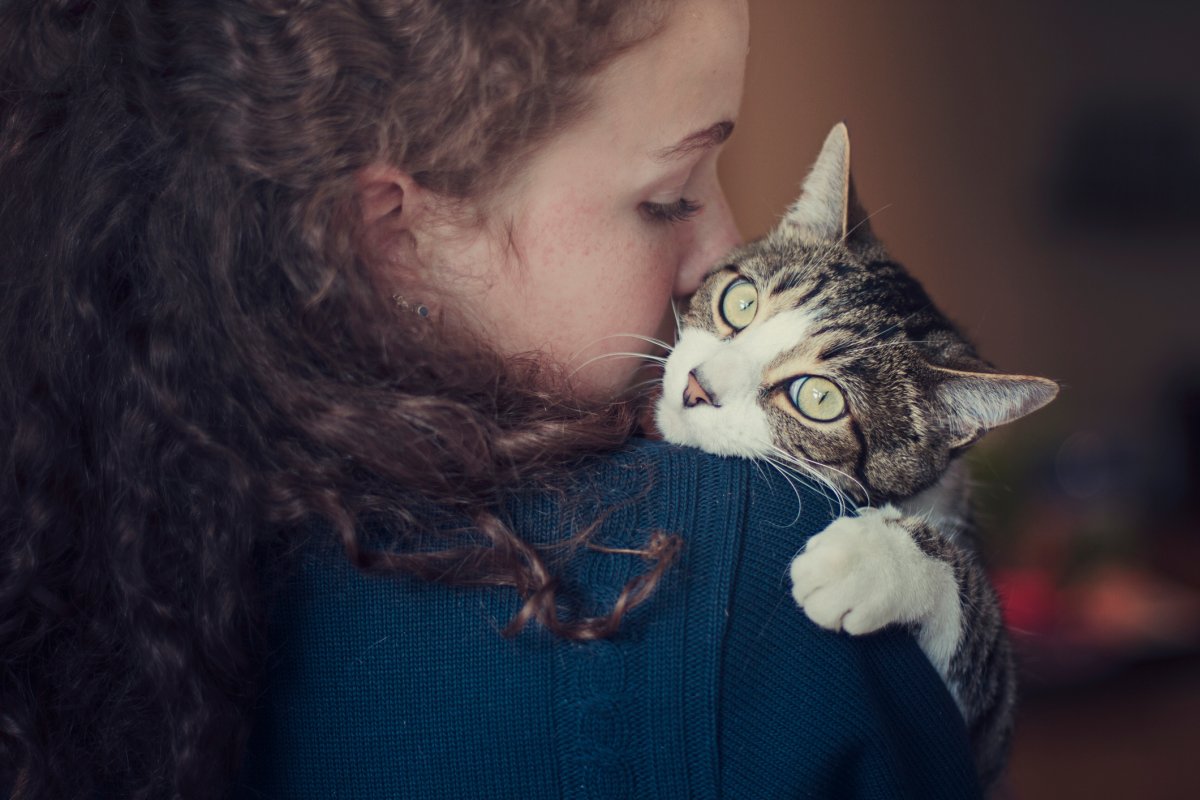There is no link between owning a cat and the development of mental disorders like schizophrenia, a new study out of University College London says.

Studies in the past have suggested that those who grow up with cats are more likely to contract the parasite Taxoplasma gondii (T. gondii) because felines are primary hosts. However, researchers found no evidence that the presence of cats during pregnancy or childhood results in psychotic symptoms during adolescence.
(According to the Mayo Clinic, T. gondii is a common parasite that is found in both domesticated and wild cats around the world. It can lead to toxoplasmosis, a disease that may cause flu-like symptoms in some people but most people who contract it won’t develop signs or symptoms. It is not thought of as dangerous in healthy adults but can cause complications and may be fatal towards immune-compromised individuals. It is also believed to lead to the development of mental health issues.)
READ MORE: Cuddling kittens could make you very sick, scientists say
“In our study, initial unadjusted analyses suggested a small link between cat ownership and psychotic symptoms at age 13, but this turned out to be due to other factors,” lead author Dr. Francesca Solmi said in a statement. “Once we controlled for factors such as household overcrowding and socioeconomic status, the data showed that cats were not to blame.”
Solmi says previous studies which reported such a link failed to control for other such possible explanations.
The study looked at nearly 5,000 people born between 1991 and 1992 and followed them until they reached the age of 18. Researchers kept data on whether their households had cats while the mother was pregnant and when their kids were growing up.
And while researchers found no link between cats and the cause for mental illness, there is still a chance that the T. gondii parasite can pose a risk.
“Our study suggests that cat ownership during pregnancy or in early childhood does not pose a direct risk for later psychotic symptoms,” said co-author Dr. James Kirkbride in a statement. “However, there is good evidence that T. gondii exposure during pregnancy can lead to serious birth defects and other health problems in children. As such, we recommend that pregnant women should continue to follow advice not to handle soiled cat litter in case it contains. T. gondii.”
A 2016 study was one of several to link the parasite to a range of mental health disorders including bipolar disorder, schizophrenia and intermittent explosive disorder (IED), as well as other behavioural dysregulations like suicide attempts and car accidents.
IED is a disorder that involves repeated bouts of rage.
READ MORE: Alarming increases in the number of animals rescued by shelters in 2016
“This is the first time we’ve confirmed this idea in humans,” said study author Teodor Postolache of the University of Maryland School of Medicine. “It indicates that this parasite could be having significant effects on age-related emotions and behaviour in people with mental illness.”
However, according to a 2012 study by the Karolinska Institutet in Sweden, between 30 and 50 per cent of the world’s population is thought to be infected with the parasite – most of whom do not present with signs or symptoms.
Most people contract the parasite by eating poorly cooked meat of infected animals or through contact with cat feces.
“It’s important to emphasize that humans have lived with this parasite for many millennia, so today’s carriers of toxoplasma need not to be particularly worried,” said Antonio Barragan, researcher at the Center for Infectious Medicine at Karolinska Institutet.
The Canadian Centre for Occupational Health and Safety (CCOHS) lists several occupations that may be at risk for contracting the parasite. They include: animals care workers, slaughterhouse workers, butchers, cooks, agricultural workers, landscapers, laboratory workers and health-care workers.
The CCOHS says that if an infection is suspected, treatment depends on the severity of the infection but it’s primarily treated with antibacterial and anti-parasitic drugs for about four weeks.




Comments